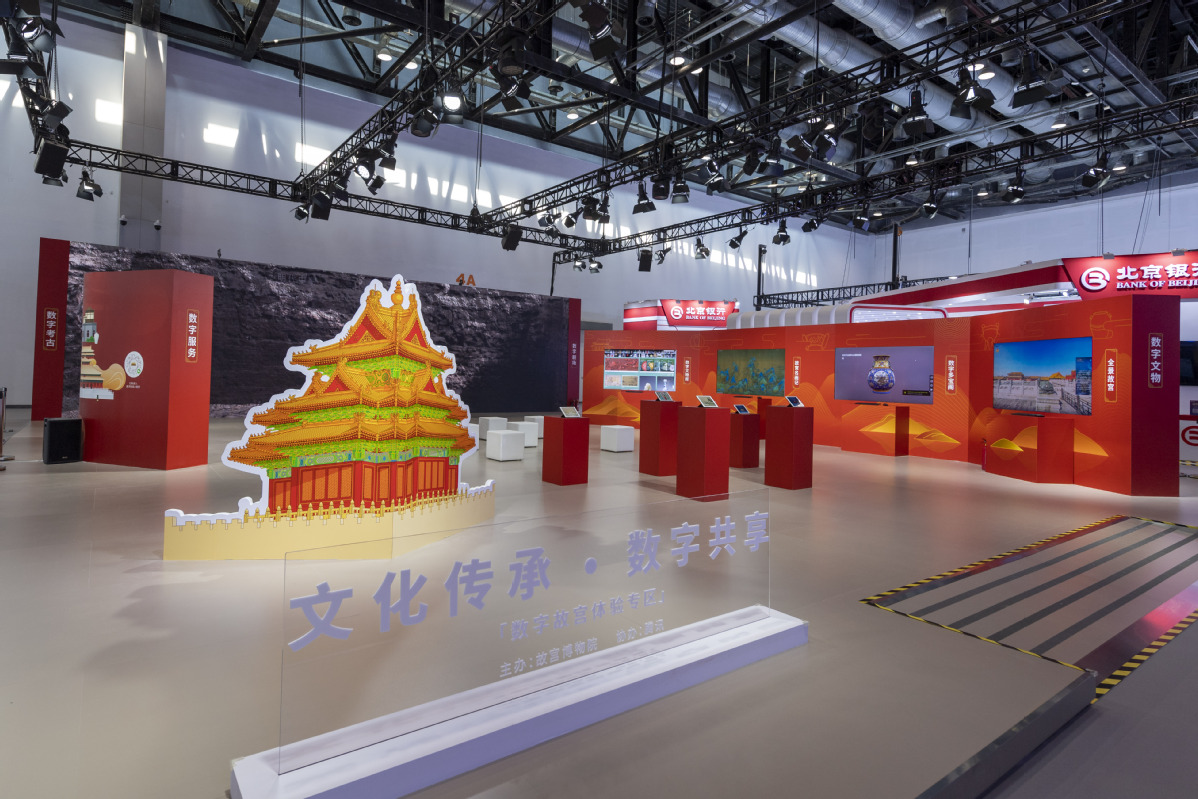Cultural tourism firms tout tech at major fair


At this year's China International Fair for Trade in Services, cultural and tourism services are being combined into one sector for the first time to showcase their new products and technologies, as well as new services and businesses in cultural trade.
As a major platform for service trade in the country, the 2021 CIFTIS opened on Thursday and will end on Sept 7 in Beijing.
The cultural and tourism service sector is being held both online and offline in various forms such as exhibitions, forums, and promotional and trade activities. It has attracted participation from more than 1,100 companies, agencies and institutions.
They include leading cultural companies such as China Hualu Group, StarTimes, Perfect World and iReader, and some unicorns-startups valued at more than $1 billion within 10 years of their establishment-in the field of cultural digitalization like ByteDance, Leyard and Seengene.
Overseas tourism service agencies are displaying new trends in the industry via the online platform. The online exhibition provides three-dimensional booths, live broadcasts, product lists and other digital and smart services.
Of the total, nearly 600 companies, agencies and institutions are participating in the offline exhibition, including over 60 international companies and nearly 100 Fortune Global 500 companies. They occupy a combined exhibition area of 22,400 square meters, the largest of the total eight thematic exhibition zones at this year's fair.
Part of the sector, the Beijing government has launched an event to showcase a variety of cultures from the countries and regions involved in the Belt and Road Initiative. Foreign diplomatic institutes and other organizations from nearly 30 BRI-involved countries and regions have signed up for the event, offering artistic performances as well as cultural promotion and exhibitions.
At the cultural and tourism exhibition section, a large number of digital and intelligent projects using the technologies of 5G, big data, augmented reality and virtual reality are being showcased to provide visitors with unique interactive experiences.
In tourism services, for example, visitors can discover Peking Opera culture through an immersive experience, drive a Fuxing bullet train, the fastest train in the country, on a simulator, and take a VR trip to some well-known Red tourism spots, according to Liu Bin, deputy director of the Beijing Culture and Tourism Bureau.
Since 2019, the revenue of cultural and sci-tech integrated companies above designated size-companies with annual revenue of more than 20 million yuan ($3.09 million)-in Beijing has accounted for more than 50 percent of the city's total revenue of the cultural industry for three consecutive years, with an annual growth rate of more than 10 percent.
Zhao Weidong, executive vice-minister of the Publicity Department of the Beijing Committee of the Communist Party of China, said the host city boasts rich cultural and scientific resources as the national cultural center and an international sci-tech innovation hub. It has an innate advantage in promoting the integrated development of culture, science and technology.
These diverse products and advanced technologies being displayed at the fair have fully demonstrated the latest achievements made by Beijing in boosting the deep integration of culture and sci-tech, he added.
In addition to technologies, various cultural creative products are being presented at the ongoing fair, many of which are making their debuts.
The Beijing Administration Center of Parks, for instance, is showcasing more than 200 kinds of creative products in 13 categories, with the theme of famous historical parks such as the Summer Palace and the Temple of Heaven.
They include mortise-and-tenon architectural joins, bluetooth earphones, stationery featuring traditional Chinese culture and popsicles shaped as major buildings and attractions of the parks.




































